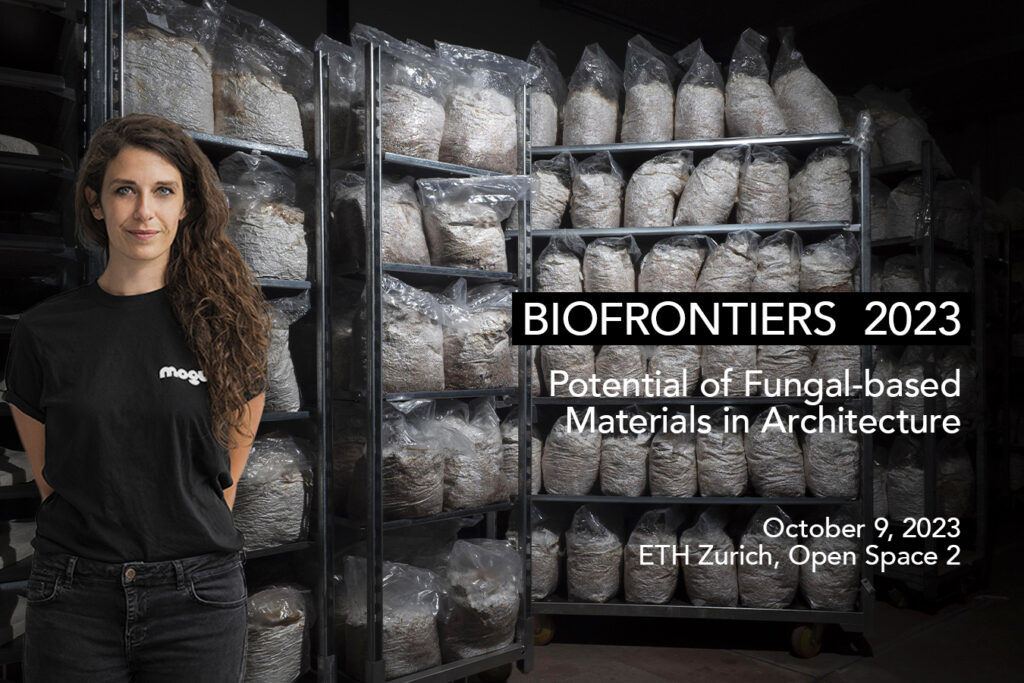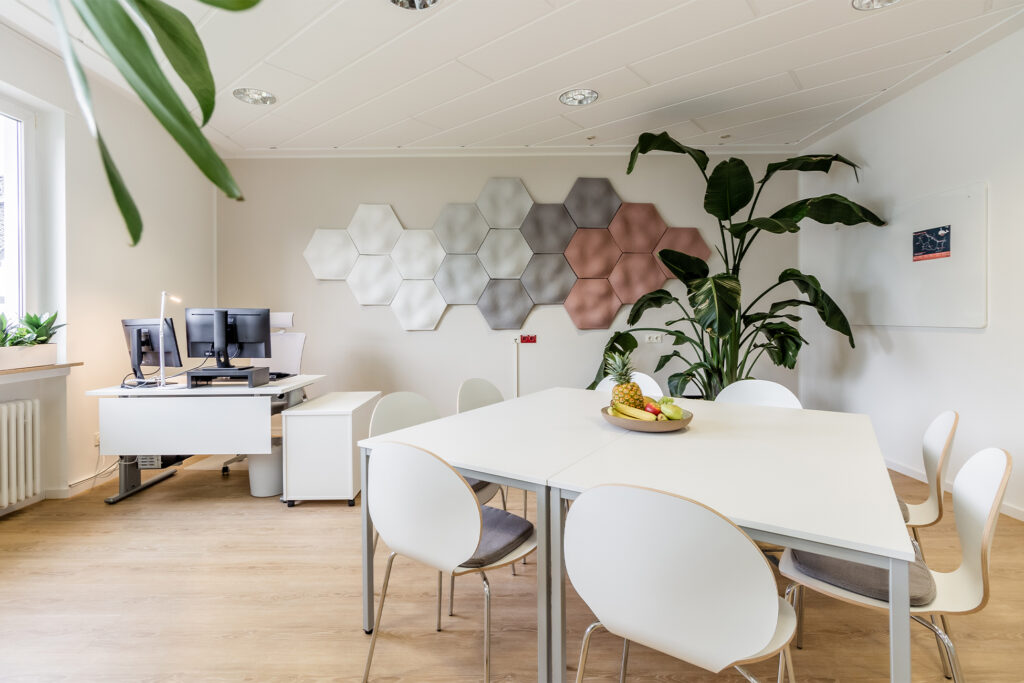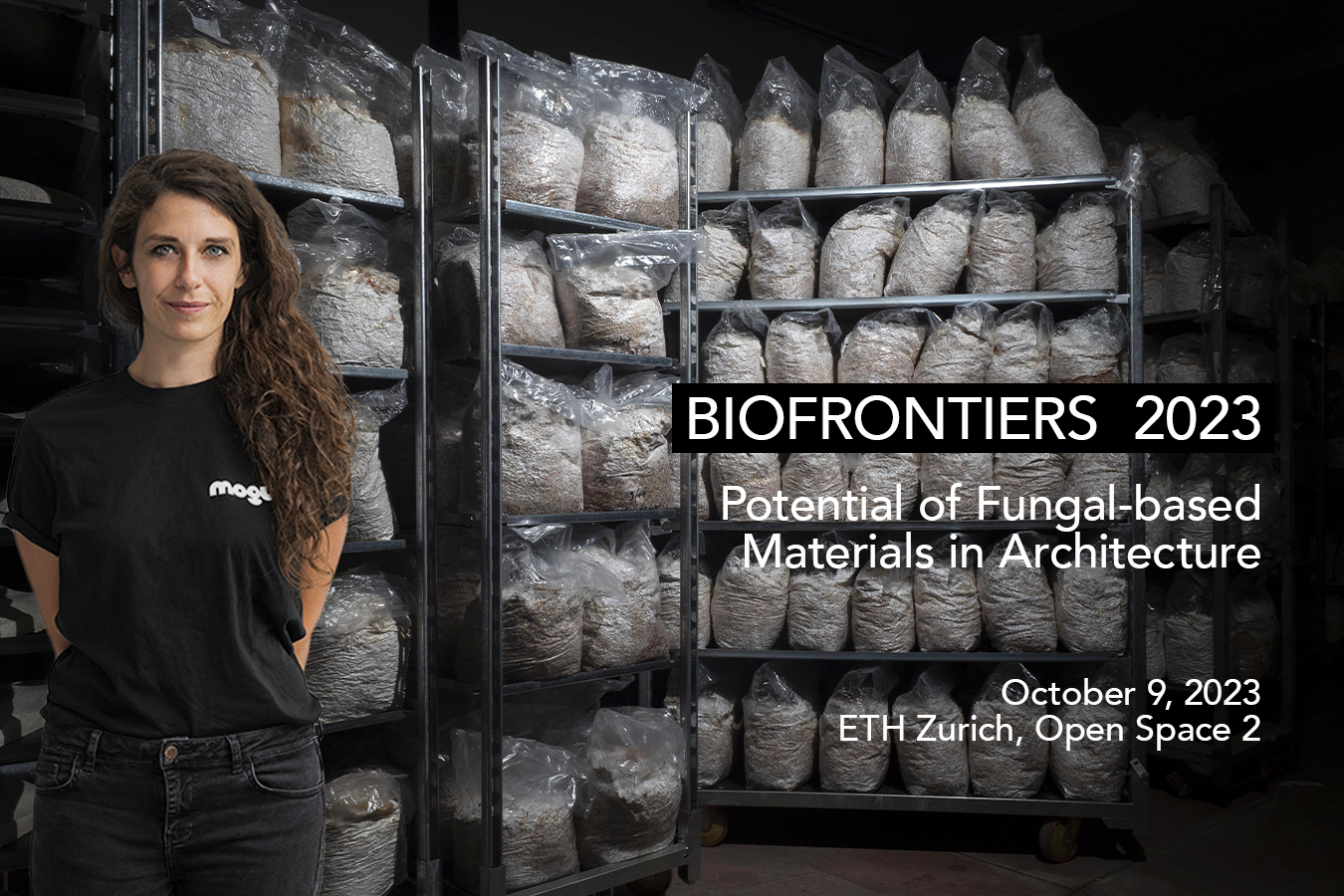
Architecture, as an industry, is on the verge of an unprecedented revolution, driven by a growing awareness of environmental concerns and the quest for more sustainable solutions. One of the most anticipated events set to illuminate this transformation is the Biofrontiers 2023 symposium, scheduled to take place at ETH Zurich, Open Space 2, on Monday, October 9, 2023. This symposium will bring together industry and academia experts to explore the role of mycelium materials in shaping the future of architecture.
Register now for those interested in attending the upcoming Biofrontiers 2023 symposium and participating in discussions on sustainability and innovation in architecture
Monday, October 9, 2023 | ETH Zurich, Open Space 2
MYCELIUM-BASED MATERIALS: ANTICIPATED CHALLENGES AND OPPORTUNITIES
Panel 4 of the upcoming Biofrontiers 2023 symposium will delve into the anticipated challenges and opportunities of mycelium-based materials and circular materials in general. These materials hold tremendous promise as alternatives to traditional building materials but are poised to confront various significant hurdles. During the panel, industry and academia experts are expected to share their insights and experiences to better understand the barriers that may impede broader adoption of these materials in the future.
ANTICIPATED CHALLENGES IN ADOPTING MYCELIUM-BASED MATERIALS
1. Certification Complexity: Foreseen as a primary challenge, the certification process for mycelium-based materials is expected to be intricate. These innovative materials will likely need to undergo extensive testing and certification to ensure safety and regulatory compliance. However, the process may come with substantial costs and time commitments.
2. Standardization in Production: Ensuring uniformity in the production of mycelium-based materials is expected to be another critical challenge. Large-scale production will require clear guidelines and standardized processes to maintain consistent quality and scalability.
3. Initial Investment Costs: While mycelium-based materials hold the potential to reduce environmental impact, initial costs may be considerably higher compared to traditional materials. This financial aspect may deter many companies and designers from considering them.
SNEAK PEEK INTO PANEL 4: SERENA CAMERE FROM MOGU
One of the most highly anticipated moments in Panel 4 is the participation of Serena Camere, CEO of Mogu, a leading company in mycelium-based material production. Serena is expected to share Mogu’s vision and future strategies for overcoming these challenges. Mogu is known for its pioneering efforts in addressing certification complexities, collaborating closely with regulatory bodies to establish rigorous standards.
Furthermore, Mogu is likely to emphasize ongoing investments in research and development, aimed at standardizing production processes and reducing initial costs. These forward-looking efforts are expected to contribute significantly to making mycelium-based materials more accessible to designers and builders in the future, paving the way for increased adoption in sustainable construction projects.

FUTURE PROSPECTS
The Biofrontiers 2023 symposium, scheduled for Monday, October 9, 2023, at ETH Zurich, Open Space 2, promises to shed light on the potential of mycelium-based materials and circular materials in the architecture of tomorrow. While challenges are anticipated, the participation of industry experts such as Serena Camere of Mogu reaffirms the belief that innovation and dedication can overcome these obstacles.
The future of architecture will undoubtedly be guided by sustainable solutions, and mycelium-based materials are poised to play a central role in this transformative journey. The Biofrontiers 2023 symposium will set the stage for ongoing discussions and highlight that the convergence of nature and technology can lead to innovative, environmentally-conscious solutions in modern architecture.
Event organized by the Block Research Group (ETH) and the chair of Digital Building Technologies (ETH), in collaboration with the chairs of Prof. Hortense Le Ferrand from NTU Singapore and Prof. Dirk Hebel from KIT Karlsruhe, with support from the Institute of Technology in Architecture (ITA) and ALIVE, and Holcim Foundation.

